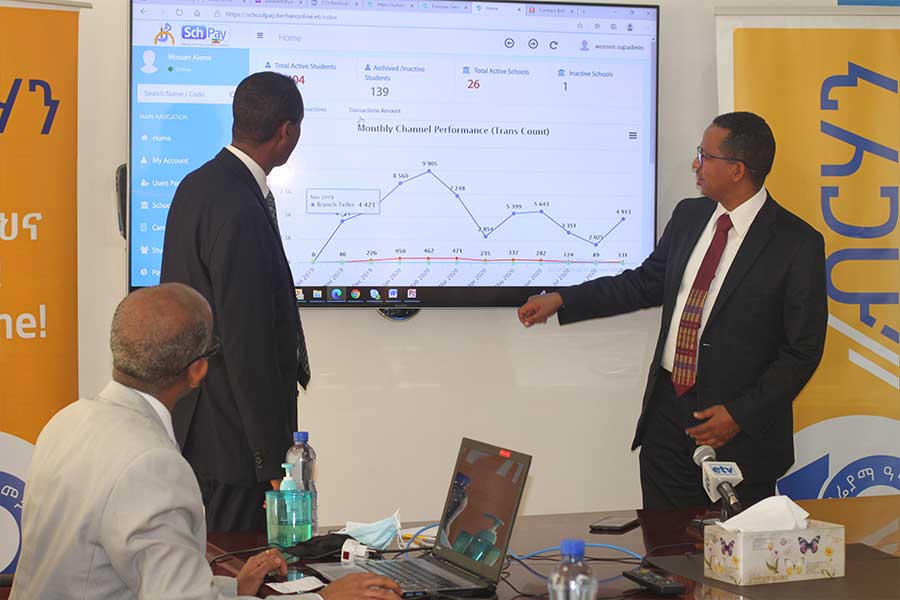
Commentaries | Aug 21,2021
Djibouti officials have raised objections over what they describe as "inconsistencies" in the evaluation metrics used in the World Bank's recent port ranking. Out of 405 ports, Djibouti's ports dropped from 26th place last year to 379th this year. The officials expressed immediate discontent upon the report's release, prompting high-level discussions with the ranking team.
Nicolas Peltier-Thiberg, global director of transport of the World Bank, met with Ilyas M. Dawleh, minister of Economy & Finance, and Aboubaker Omar Hadi, president of the Djibouti Port & Free Zones Authority, last week. The delegation inspected container handling facilities at the ports, with plans for further technical exchanges scheduled for September.
Ilyas reiterated Djibouti's official disagreement with the recent rankings, particularly criticising the inclusion of the marine Automatic Identification System (AIS) as a relevant factor in evaluating port performance. He said that Djibouti's ports maintain high levels of productivity, effectiveness, and efficiency comparable to top global ports.
"We hope the CPPI index team will acknowledge scientifically proven errors and mistakes," he said.
The World Bank acknowledged the discussions with Djibouti officials, attributing the decline "largely to external factors independent of the port." These factors include security concerns in the Red Sea due to missile attacks at the Bab-el-Mandeb strait and increased authorization procedures since last year.
"This decline should be interpreted cautiously," the World Bank's statement noted.
The Container Port Performance Index (CPPI), jointly produced with S&P Global Market Intelligence, showed East and Southeast Asian ports dominating the top 20 positions, with Somaliland's Berbera Port ranked 103rd overall despite its smaller size.
Amid global disruptions to ocean freight supply chains, attributed to conflicts in the Red Sea, port congestion, and anticipatory import activities ahead of peak seasons, shipping analytics platforms like Oslo-based Xeneta forecasted spot rates nearing levels seen during the COVID-19 pandemic.
The World Bank underscored Djibouti's ports as crucial logistics hubs in Africa, pivotal for regional and economic development, especially for Ethiopia. Ethiopia heavily relies on these ports, which facilitated the transit of 95pc of its 7.6 million tons of goods in the first half of the year. Djibouti has served as the primary gateway for goods since its conflict with Eritrea began in 1998.
While Ethiopia aims to diversify its sea access, including through agreements with Somaliland to rent Berbera Port and exploring options like Kenya's Port Lamu, Djibouti remains the closest and most cost-effective choice. While there are attempts to invest in other ports, Ethiopia and Djibouti continue to negotiate updates to their longstanding protocol agreement to accommodate developments in the logistics sector.
PUBLISHED ON
Jun 22,2024 [ VOL
25 , NO
1260]

Commentaries | Aug 21,2021

Featured | Sep 13,2022

Radar | Apr 15,2023

Fortune News | Mar 12,2022

Fortune News | Jul 13,2025

Radar | Mar 16,2024

Fortune News | Sep 11,2020

Radar | May 31,2025

Radar |

Fortune News | Nov 23,2019

Dec 22 , 2024 . By TIZITA SHEWAFERAW
Charged with transforming colossal state-owned enterprises into modern and competitiv...

Aug 18 , 2024 . By AKSAH ITALO
Although predictable Yonas Zerihun's job in the ride-hailing service is not immune to...

Jul 28 , 2024 . By TIZITA SHEWAFERAW
Unhabitual, perhaps too many, Samuel Gebreyohannes, 38, used to occasionally enjoy a couple of beers at breakfast. However, he recently swit...

Jul 13 , 2024 . By AKSAH ITALO
Investors who rely on tractors, trucks, and field vehicles for commuting, transporting commodities, and f...

Nov 1 , 2025
The National Bank of Ethiopia (NBE) issued a statement two weeks ago that appeared to...

Oct 25 , 2025
The regulatory machinery is on overdrive. In only two years, no fewer than 35 new pro...

Oct 18 , 2025
The political establishment, notably the ruling party and its top brass, has become p...

Oct 11 , 2025
Ladislas Farago, a roving Associated Press (AP) correspondent, arrived in Ethiopia in...